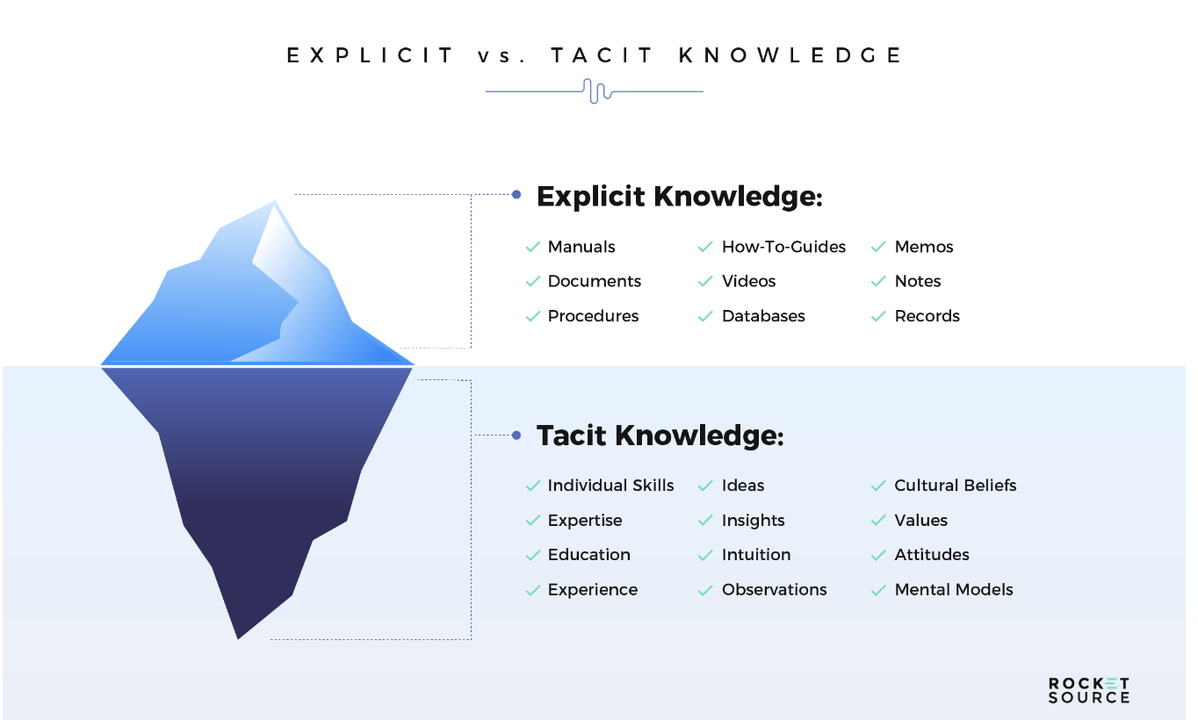
ChatGPT & Knowledge Types
As we learn how to live and work with new artificial intelligence (AI) technologies, it will become increasingly important to understand the different knowledge types and how they will be impacted. There are many types of knowledge, but they can broadly be grouped into the following two categories: explicit and tacit.
Explicit knowledge, is information that can be articulated and accessed easily. It is straightforward and clearly documented. Examples include: manuals, encyclopedias, and how-to videos. ChatGPT is really good at generating explicit knowledge.
Then there is tacit knowledge. This type of insight is gained through life experience. Tacit mental models are acquired through practice, observation, and collaboration. Think of it as wisdom! Tacit knowledge is deeply ingrained and difficult to articulate or transfer to others.
For example, there is no course or training that can guarantee that someone will become a great leader. These types of complex skills need to be learned and practiced over time. ChatGPT has not been able to replace tacit knowledge, making this type all the more valuable.
领英推荐
So how can we nurture our tacit knowledge and expertise within our industries? Here are some suggestions:
AI is here to stay. I suggest we grow in parallel by focusing on our natural and unique strengths. Let’s learn to hand off tedious tasks and, in turn, create more room for deep thinking, creativity, and collaboration.
UX Design Leader
1 年Great perspective, Maren Rey! I especially love points 3 and 4. You are an excellent example of a knowledge detective :)